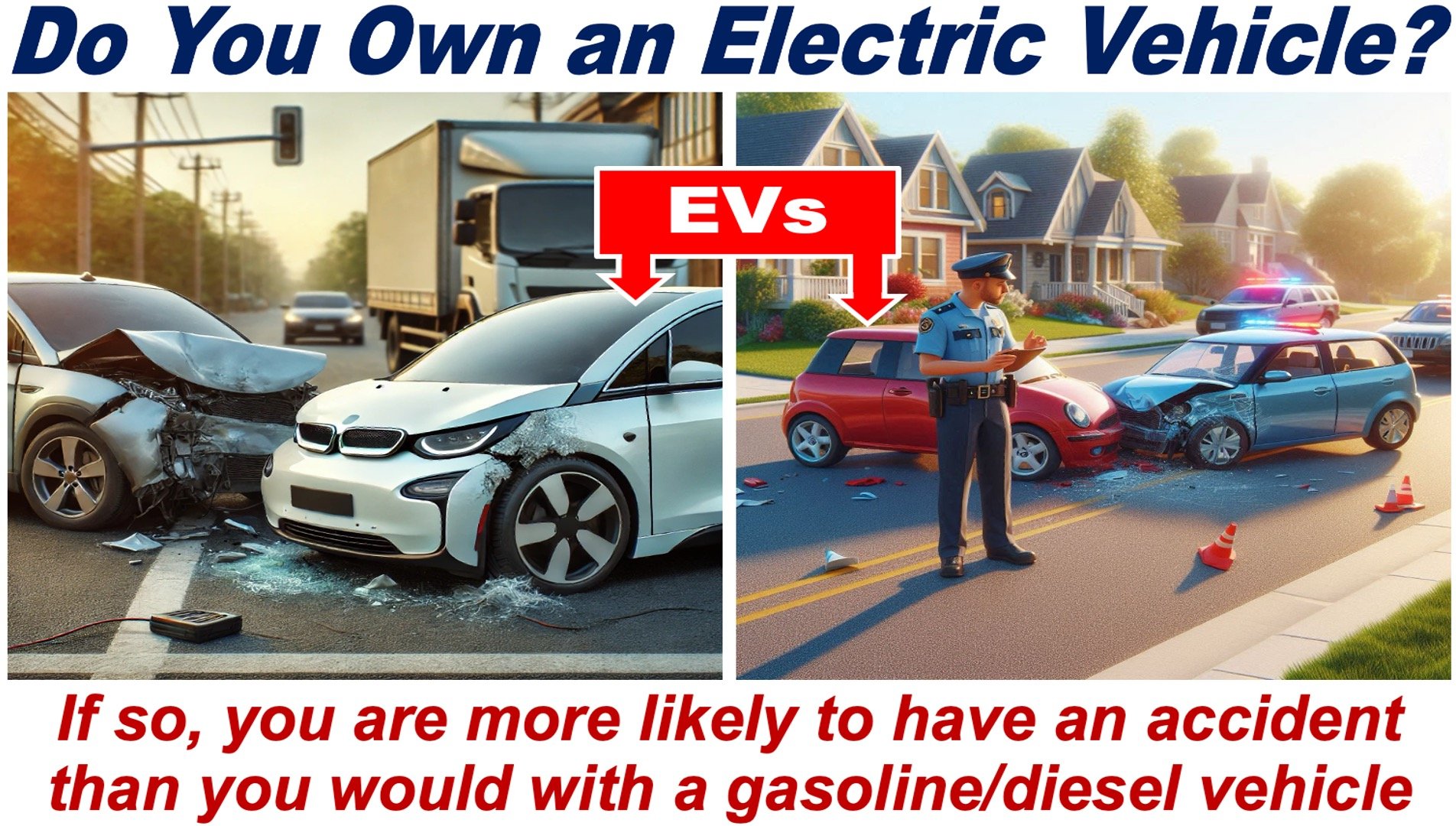Recent research conducted by Lero, the Science Foundation Ireland Research Centre for Software, has revealed that the accident risks for drivers of electric vehicles (EVs) are higher compared to those driving traditional gasoline and diesel cars, particularly in at-fault road traffic accidents.
The study analyzed *telematics data from over 125 million vehicle trips, highlighting notable differences in driver behavior and the risk profiles of electric, hybrid (HYB), and internal combustion engine (ICE) vehicles.
* Telematics Data refers to information collected from vehicles using GPS and onboard sensors, typically tracking things like location, speed, driving behavior, and vehicle diagnostics. This data is often used for insurance, fleet management, and improving driver safety.
The researchers wrote about their study and findings in the peer-reviewed academic journal Accident Analysis & Prevention (citation below).

What are At-Fault Accidents & At-Fault Claims?
-
At-Fault Accident
The driver is responsible for causing the collision.
-
At-Fault Claim
The insurance claim associated with the responsible driver, usually leading to coverage of damages by their insurance company and potential penalties like higher premiums.
In both cases, the accident is considered to be the driver’s fault.
Higher At-Fault Claim Rates Among EV Drivers
According to the findings, drivers of electric vehicles recorded a higher rate of at-fault claims than those driving gasoline or diesel-powered vehicles.
Despite covering less mileage on average, EV drivers exhibited a 4% increase in at-fault accidents compared to ICE drivers.
Hybrid vehicles also showed a 6% increase in at-fault claims, though when tested using statistical models, this increase was not deemed statistically significant for hybrids.
This suggests that electric vehicles pose a greater risk for at-fault claims.
Lero researcher and co-director of the Centre of Emerging Risk Studies at the University of Limerick, Dr. Barry Sheehan, explained:
“Our research shows that despite lower road exposure, EV drivers are more likely to experience an at-fault claim. This indicates a higher risk profile for electric vehicles when compared to traditional internal combustion engines.”
Different Driving Behavior for EVs and Hybrids
The study revealed that EV and hybrid drivers exhibit different driving behaviors compared to those in traditional vehicles.
Specifically, electric vehicle drivers tend to have fewer instances of harsh acceleration, braking, cornering, and speeding than ICE drivers.
Despite these less aggressive driving patterns, the reduction in harsh driving events does not translate into lower accident risks, that is, fewer accidents or claims.
Lead researcher Kevin McDonnell noted:
“Our analysis shows that although EVs and hybrids cover less distance and demonstrate smoother driving behaviors, they are still more prone to at-fault accidents. This discrepancy suggests that other factors related to vehicle operation or driver adaptation to new technology could be at play.”
Increased Repair Costs for EVs
Another key finding from the study is that electric vehicles are 6.7% more expensive to repair than traditional vehicles.
The complexity of EVs, driven by their lithium-ion batteries and reduced mechanical parts, adds to the financial burden following an accident.
Additionally, with more significant first-party damages being reported, the overall cost of repairs is higher for EVs than for gasoline and diesel cars.
Professor Finbarr Murphy, co-author of the study and Executive Dean of the Kemmy Business School at the University of Limerick, highlighted the importance of considering the financial impact when transitioning to electric vehicles:
“With the increased likelihood of at-fault claims and higher repair costs, it is essential for regulators, manufacturers, and consumers to weigh these risks and expenses.”
Final Thoughts
As more drivers switch to electric vehicles, understanding the risks associated with EVs becomes increasingly important.
While electric vehicles offer numerous environmental benefits, the research suggests that they come with a higher likelihood of at-fault accidents and increased repair costs.
Policymakers, insurers, and manufacturers need to consider these factors when promoting the transition to alternative energy vehicles.
This comprehensive study provides valuable insights into the evolving landscape of transportation and safety, offering critical data for those looking to adopt or invest in electric and hybrid vehicles.
Citation
McDonnell, K., Sheehan, B., Murphy, F., & Guillen, M. (2024). Are electric vehicles riskier? A comparative study of driving behaviour and insurance claims for internal combustion engine, hybrid and electric vehicles. Accident Analysis & Prevention, 207, 107761. https://doi.org/10.1016/j.aap.2024.107761
